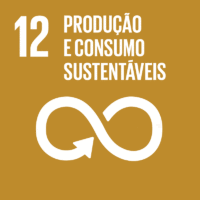Ciência_Iscte
Publicações
Descrição Detalhada da Publicação
Proceedings of the 14th European Conference on Innovation and Entrepreneurship, ECIE 2019
Ano (publicação definitiva)
2019
Língua
Inglês
País
Estados Unidos da América
Mais Informação
Web of Science®
Esta publicação não está indexada na Web of Science®
Scopus
Google Scholar
Esta publicação não está indexada no Overton
Abstract/Resumo
Business models (BMs) and their link with cleaner, green production have been the subject of growing attention in the recent research on sustainability. Businesses are increasingly dealing with the challenges and opportunities associated with transition towards sustainability due to the adoption of new strategies to innovate and implement more suitable solutions for the new context. Many studies on a broad array of sectors and countries, notably farming activities and the food system in general (Smith, 2006; Spaargaren, Oosterveer and Loeber, 2012), have already documented this shift. This paper addresses the emergence and development of new business models (BM) envisaging the transition to sustainability. As little attention has been given to the food sector in this regard, the research presented reflects on BM innovation both generally and in the specific case of the food sector by presenting the case study of an innovative farm in Lisbon Metropolitan Area (Quinta do Oeste). The study is part of a Project on Spatial Planning for Change (SPLACH). The case study allows the identification of several aspects to make the food business more sustainable in certain parts of the value chain, specifically production and commercialization (short chain supply). The study was carried out with primary data collected through extensive interviews with key actors, namely the farm's representative, and visit/detailed observation of the farm. The research shows how sustainable food production and commercialization have given rise to new offerings and demand. In terms of originality, this research aims to contribute to and stimulate the discussions on the need to create novel and more sustainable business models in the food sector. The research identifies different elements that contribute to the innovation of BM for more sustainable farms, more specifically the importance of entrepreneurs' values as a driver of sustainable pathways and the centrality of producers' networks in the implementation of innovative BM. The study also highlights the need to address research gaps in the theoretical and methodological dimensions of the food system transition.
Agradecimentos/Acknowledgements
--
Palavras-chave
Commercialization practices,Food system transition,Organic farming,Sustainable business models,Technological innovation
Classificação Fields of Science and Technology
- Economia e Gestão - Ciências Sociais
Contribuições para os Objetivos do Desenvolvimento Sustentável das Nações Unidas
Com o objetivo de aumentar a investigação direcionada para o cumprimento dos Objetivos do Desenvolvimento Sustentável para 2030 das Nações Unidas, é disponibilizada no Ciência_Iscte a possibilidade de associação, quando aplicável, dos artigos científicos aos Objetivos do Desenvolvimento Sustentável. Estes são os Objetivos do Desenvolvimento Sustentável identificados pelo(s) autor(es) para esta publicação. Para uma informação detalhada dos Objetivos do Desenvolvimento Sustentável, clique aqui.

 English
English


